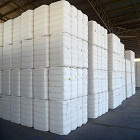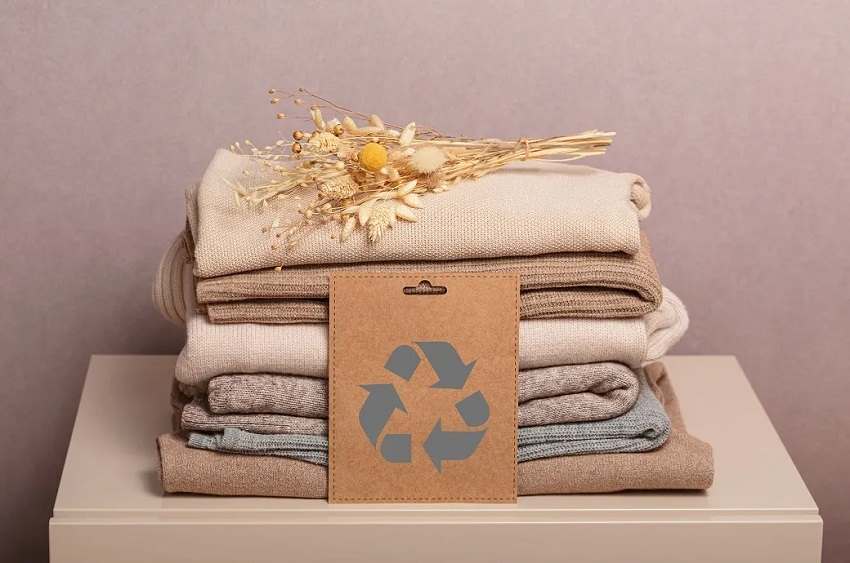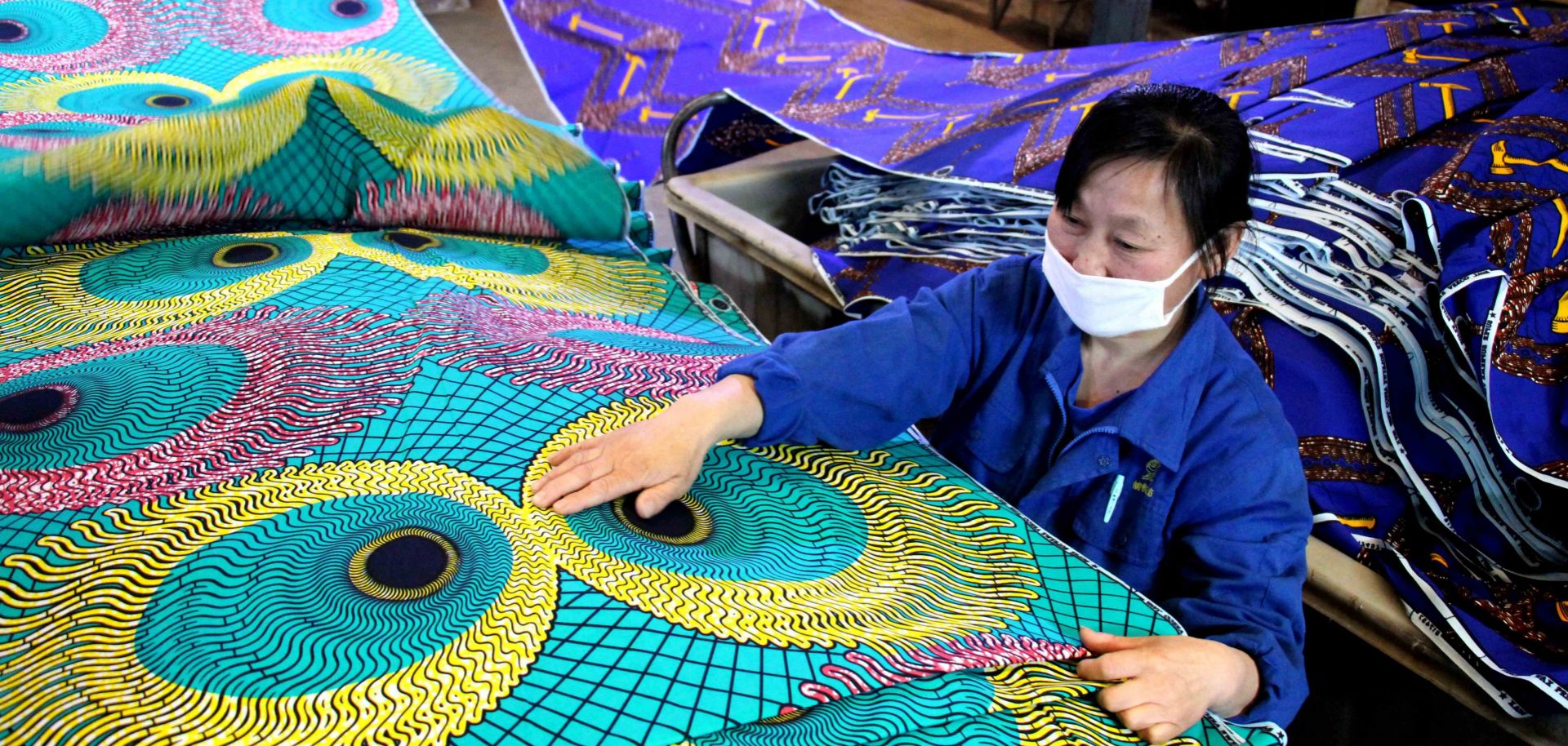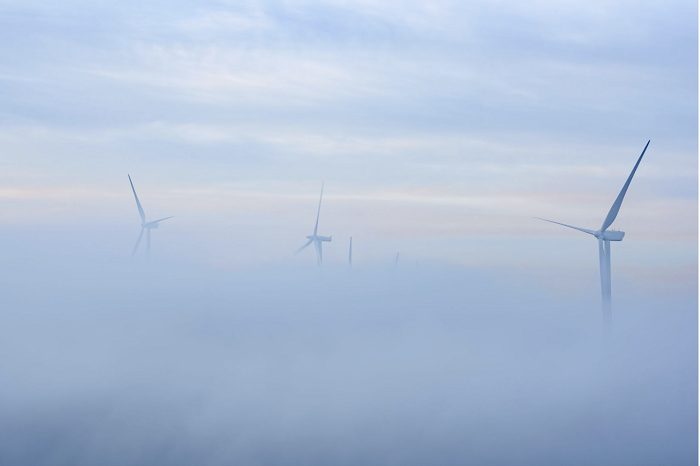Africa's textile and apparel exports to the United States could quadruple over the next decade through an extended duty-free trade treaty.The trade program known as the African Growth and Opportunities Act (AGOA), currently before American lawmakers, provides eligible sub-Saharan countries duty-free access to the world’s top apparel market, giving Africa a competitive edge over suppliers such as Bangladesh and Vietnam.
AGOA was established in 2000. The program expires on September 30, 2015. About 40 African countries are eligible to take part in it and it could be extended another 10 years. This will mean Africa will be able to quadruple its exports, creating another 5,00,000 new jobs.
Last year, US clothing imports from sub-Saharan countries were up nearly six per cent from 2013, as countries such as Lesotho, Kenya, Ethiopia and Tanzania participated in the program.
Africa has lower labor costs and abundant raw materials, such as top-quality cotton from Uganda, but congested ports, a poor road network, lack of skills and old technology are a hindrance.
Asia may face rising costs but is still way more competitive than Africa, especially on productivity, quality and product range. An extension of AGOA will please Asian firms with factories in Africa.
trade.gov/agoa/

Cotton is not available to India's textile industry at competitive rates. It has to be brought from distant places, incurring additional transportation and other costs. Mills want cotton available to them at a competitive rate and as soon as possible. They want the Cotton Corporation of India (CCI) to release its stocks and make cotton available to the industry. They say if this is not done immediately, it may distort the market and leads to artificial increase in prices thereby making the user segment uncompetitive. 
The role of the CCI is primarily to ensure minimum support price for the farmers so that they get a remunerative price for their products. Mills are largely dependent on CCI for their cotton supply. The total requirement of mills is close to 85,000 to 90,000 bales per day whereas CCI has been offering only 40,000 bales per day.
Indian cotton has been cheaper than international cotton. But the situation has changed significantly now and prices are substantially above international prices mainly because of low cotton arrivals in the market. Mills say CCI’s huge stocks are pushing up cotton prices all over the country and that taking advantage of this situation, private traders are hoarding cotton.
According to FICCI the arrival of cotton in the Indian market has dropped considerably in the last few days to 20,000 bales, which also has largely remained unsold because of excessively high prices.
Till date CCI has sold 10.8 lakh bales of cotton and hence carrying stocks of 75 lakh bales, as CCI has bought 85.8 lakh bales of cotton in the current season.
Cotton acreage in India, the top grower in the world, is likely to drop by the most in over a decade this year, as plunging prices and fears of a drought prompt farmers to switch to cultivating pulses in the hope for better returns. Since other crops are giving better returns, there may be a drop of around seven per cent in cotton acreage in India. That will be the steepest fall since 2002-03.
Lower output at the world’s second biggest cotton exporter, after the United States, should help give legs to a recovery in global benchmark prices that have risen 13 per cent from a five-year low of 57.05 cents per pound plumbed in January.
Amid concerns among the industry that not enough cotton has been exported, the Cotton Corporation of India has finally come out with its global tender for export of cotton to Bangladesh.
The earlier advertisement by CCI inviting buyers to register themselves for export to Bangladesh had garnered a good response and some ten exporters had registered themselves with CCI in addition to some of the domestic buyers who export as well. Bangladesh usually purchases around 55 to 60 lakh bales of cotton from India.
CCI chose Bangladesh since the logistics are better and are easier to manage either by the sea or roadway.
US apparel import growth slowed to a near halt in April after surging in March. Total US apparel imports were flat in the month on both a dollar and square meter equivalent basis, bringing the year-to-date import increases in the two measures to three per cent and 4.9 per cent respectively.
Total apparel imports from China fell by 12 per cent in April on both a dollar and square meter equivalent basis. Apparel imports from Vietnam increased by 16.5 per cent in the month, making it the number two source of US apparel imports.
Apparel imports from India grew by 11 per cent. Imports from Bangladesh have grown by 7 per cent so far in 2015, a swing from the 2.3 per cent decline in 2014. Indonesia’s apparel shipments to the US declined by almost three per cent in the first three months of 2015, resulting in a 0.4 per cent share loss, as the country tries to grapple with infrastructure deficiencies and labor issues.
Imports from Haiti have risen by more than 13 per cent in 2015 as the apparel industry there begins to develop. Imports from Myanmar have grown by 123 per cent in the first four months of this year.
The Trans-Pacific Partnership (TPP) is being criticized by many for its lack of transparency. American public and trade unions have been seeking complete documents of the deal to be made public. The TPP is an in-progress trade pact the US is negotiating with 11 other nations, which together account for nearly 40 per cent of global GDP.
Recently, Julian Assange of Wikileaks said that TPP’s transparency clock has run out, and his whistle-blowing website Wikileaks, which has published leaked chapters of the trade deal before, is crowd-sourcing a $100,000 reward for copies of the agreement’s full text. It has already managed $59,337 pledged by 1,087 people since the start of the campaign last Tuesday.
The US Senate passed Trade Promotion Authority (TPA) last month, giving the president authority to propose trade agreements to Congress for a yes or no vote but no amendments, and paving the way forward for TPP and other trade deals. If approved by the House, the TPP text has to be made available for 60 days before the president signs it and for more months before Congress votes on it. By that timeline, TPP could be settled and signed by December.
Ustr.gov
Declining exports of cotton yarn to China have worsened the oversupply situation for Indian spinning mills, who are now looking to domestic demand from the garment sector for relief.
China was a major importer of cotton yarn from India with a share of about 46 per cent of Indian exports of the commodity, but that has declined substantially – to an estimated four per cent in the first three quarters of financial year 2015 – undermining the health of Indian spinning mills. While alternative markets like Bangladesh, Vietnam and Egypt can offer some respite to exporters, their base remains small compared to China.
A mismatch between India’s spinning sector and the fabric sector – yarn manufacturing expanded rapidly in the past few years while fabric manufacturing base remained stagnant – has created a glut in the domestic market making Indian players vulnerable to export demand.
Financial year 2014 was an exceptionally good year for many cotton spinning units in India due to increasing export volumes and steady domestic consumption along with high average sales realisation. However, the decline in export demand mainly from China is likely to result in moderation in their performance during financial year ’15. Further cotton spinning units have suffered inventory losses in the second and third quarters of financial year ’15 on the back of decline in cotton and cotton yarn prices.
Pakistan's exports to the European Union (EU) under the GSP Plus status witnessed a 20 per cent increase during January 2014 to November 2014. In addition the GSP Plus mechanism has been an incentive for Pakistan to enhance democratic and human rights reforms in the country.
The GSP Plus status is conditional to Pakistan’s meeting international obligations under the conventions related to human rights, labor rights, environment protection and good governance. The status has been initially given for 10 years and is reviewed every two years.
GSP Plus has provided Pakistan a greater opportunity to fully exploit its potential in the textile sector and beyond by increasing its exports, which may result in the creation of thousands of new jobs.
It has allowed Pakistan tariff-free exports to European markets. After the grant of the GSP Plus status, the textile sector is eyeing to increase exports from 13 billion dollars to 26 billion dollars and double the direct and indirect jobs from 15 million to 30 million in the next five years.
GSP Plus status allows almost 20 per cent of Pakistani exports to enter the EU market at zero tariff and 70 per cent at preferential rates.
Blueprint, a new denim-based fabric trade show, will take place in the United States, June 24 and 25, 2015.
The concept is created and run by Bill Curtin, owner of the New Jersey-based BPD Washhouse denim laundry. It will highlight fabric offerings for the fall 2016 season. The international exhibitors list includes denim mills such as Orta Anadolu and Calik (both from Turkey), Raymond Uco (from India), Mount Vernon (from the USA) and Grandtex, Tyfountex Creative Workshop and Eratex Manufacturing (all three from Indonesia).
In addition, a small selection of local resources and patternmakers will exhibit. These include Manhattan-based companies NYC Factory and Caroda and High Production and the New Jersey-based company Inez.
There will be an interactive area with dry process equipment where visitors and exhibitors can learn and try denim finishing techniques such as handsanding, grinding and destruction. The event will also feature a vintage denim flea market.
The show will be more boutique kind, more informative and more creative than other fabric get-togethers. Jeanswear brands have also been invited to show at Blueprint.
printpattern.blogspot.com/2015/02/new-trade-show-blueprint.html
G7 leaders have agreed to establish a new fund to help improve the global supply chain in the wake of the Rana Plaza disaster in Bangladesh.
The fund would help provide compensation in the event of further similar disasters and provide cash to improve fire inspection and building safety regulations.
The fund would be administered in conjunction with the International Labor Organisation and require contributions from trade associations in developed countries represented at the G7.
It would act as an insurance system for firms that commit to prevention measures and help implement labor, social, environmental and safety standards such as better-trained fire prevention inspectors.
Extremely low wages have led global brands and retailers to choose Bangladesh over China and other developing countries in recent years, but in many cases the big brands have either turned a blind eye to working conditions in pursuit of profit or knowingly taken no interest in how their clothes are manufactured.
The Rana Plaza collapse prompted demands for reforms.
G7 countries have an important role to play in promoting labor rights, decent working conditions and environmental protection in global supply chains.
The G7 will recommend that western consumers have access to apps that better inform them about whether clothes they intend to buy were manufactured in decent working conditions.
The Indian manmade fiber industry is passing through a tough phase as the substantially high excise duty provides an edge to Chinese producers to dump polyester fibers in India.
Domestically produced synthetic yarn is losing market share to cheaper imported yarn from China, Vietnam and Bangladesh. Imports of fibers, filament yarn and spun yarns of polyester increased over 18 per cent in 2014-15 compared to the previous year. These imports were predominantly from China.
So the industry wants the excise duty on domestically-produced synthetic yarn to be scrapped. The reasoning is that the excise duty is unfair discrimination between cotton and synthetic fiber and is distorting the textile market in favor of cotton, which is the opposite of the global trend.
The global textile and clothing industry can be broadly divided into natural fiber and manmade fiber industry. The natural fiber industry includes cotton, wool, silk and jute; while the manmade fiber industry includes polyamides, polyester, polyethylene, viscose and acrylic.
Over the years, the clothing pattern in India has shifted. Men's clothing consumption has moved from the traditional cotton based wear to synthetic fabrics. Cotton dhotis are giving way to trousers mostly made of polyester or polyester blends. Likewise women are moving from cotton saris to synthetic saris or dresses.
Budget doesn't have much for the struggling textile manufacturers of Pakistan, other than one positive, is the cutting down of the export refinance rate from six per cent to 4.5 per cent and the long-term refinance rate from 7.5 per cent to six per cent. This will encourage borrowing in the sector. The establishment of an Exim bank for the promotion of exports also comes as a positive.
By 2019 the textile policy is expected to generate employment for three million people. The zero-duty rating on imports of machinery will be maintained. Also the much-needed tax refunds will be paid till September.
Sales tax on the spinning, weaving, and processing segments have been raised from two to three per cent whereas the tax on unfinished cloth and garments has been kept constant at three and five per cent respectively. What remains unaddressed, despite all the mentions of increased tax collection and tax-to-GDP ratio, is a broadening of the tax base.
Textile exporters say the global lack of competitiveness on the back of an overvalued rupee also remains unaddressed.
Exports all over the world are zero-rated and Pakistan wants to be no exception. The government has to pay around Rs16 billion in customs duty drawbacks and Rs 25 billion in sales tax refunds.
- 1
- 2
- 3
- 4
- 5
- 6
- 7
- 8
- 9
- 10
UK charts course for circular fashion leadership with new CFIN roadmap
A new landmark report released by the Circular Fashion Innovation Network (CFIN) outlines major strides and a comprehensive roadmap for... Read more
The Unseen Cost of Fashion Returns: Undermining sustainability efforts
Fashion brands are increasingly vocal about their commitment to sustainability, proudly unveiling initiatives centered on recycled polyester, reduced water consumption... Read more
China's Luxury Crossroads: Consolidation or retreat for global giants?
For years, China has been the undisputed El Dorado for global fashion and luxury brands. A growing middle class, with... Read more
Fashion for Good and Arvind unveil Future Forward Factories in India to cut text…
Fashion for Good and Arvind Limited have launched the Future Forward Factories India initiative, a major push to reshape the... Read more
The Scope 3 Challenge: Unpacking the elephant in the emissions room
In the escalating global focus on combating climate change, businesses are under pressure to account for their carbon footprint. While... Read more
Right Size, Right Impact: Personalized fit weaving a sustainable future for fash…
With growing environmental consciousness, the fashion industry, long criticized for its detrimental impact, is looking for new and innovative ways... Read more
From Runway to Retail Shelf: Why fashion needs a dose of FMCG discipline
The fashion industry, often lauded for its artistry and emotional appeal, stands at an intriguing crossroads. While it captivates with... Read more
Global Sourcing Expo spotlights Australia's sustainable fashion growth amid supp…
Australia's demand for sustainable fashion is reaching new heights, driven by increasing consumer awareness and a rising wave of conscious... Read more
Shein’s climate targets validated by SBTi, but doubts persists about green crede…
Fast fashion major Shein has announced a major milestone in its sustainability journey, with its climate targets officially validated by... Read more
Global apparel industry a mixed bag of growth and caution in 2025: Wazir Advisor…
The global apparel industry has entered the second quarter of 2025 with renewed momentum, marked by strong import demand, shifting... Read more












